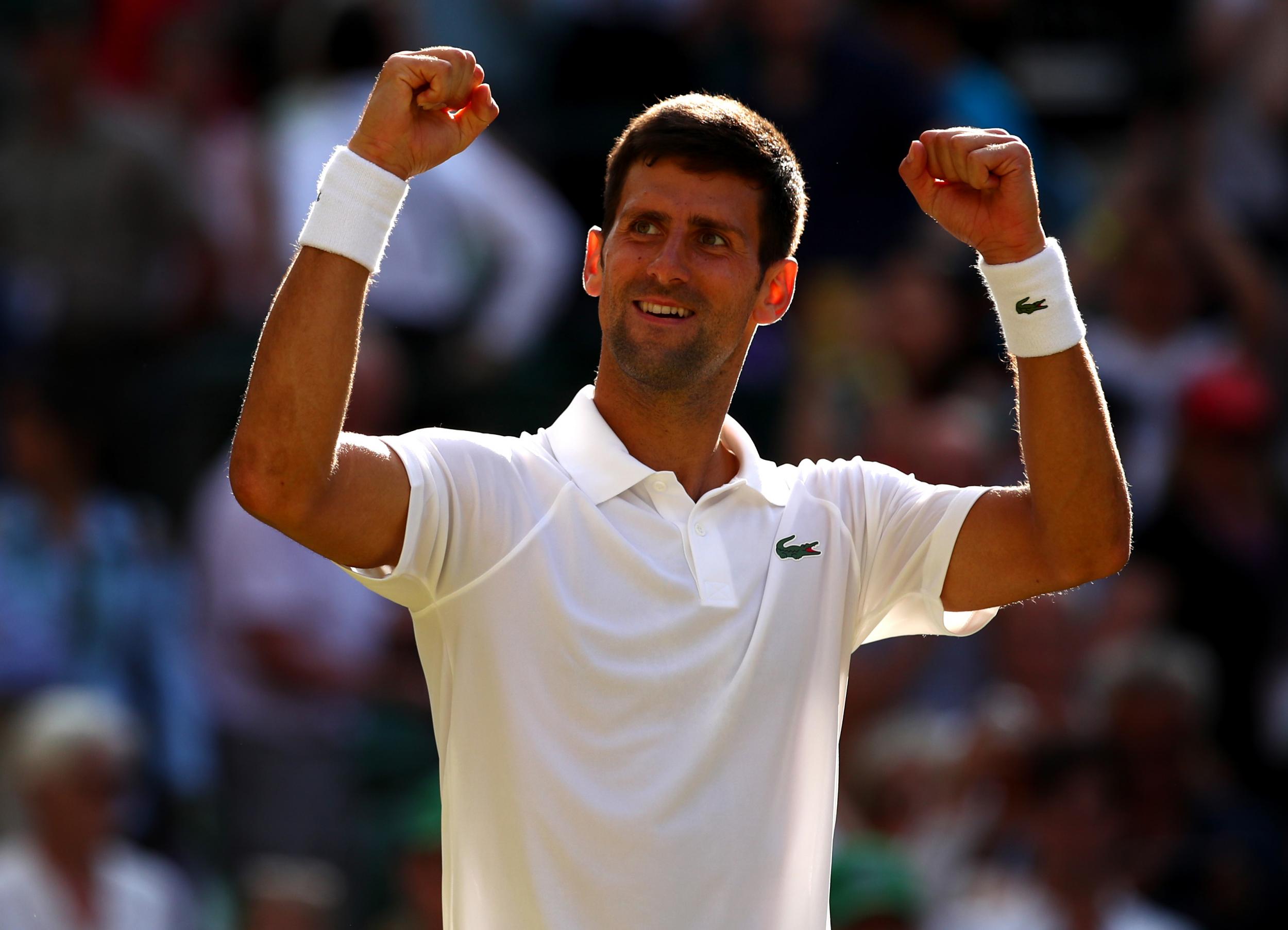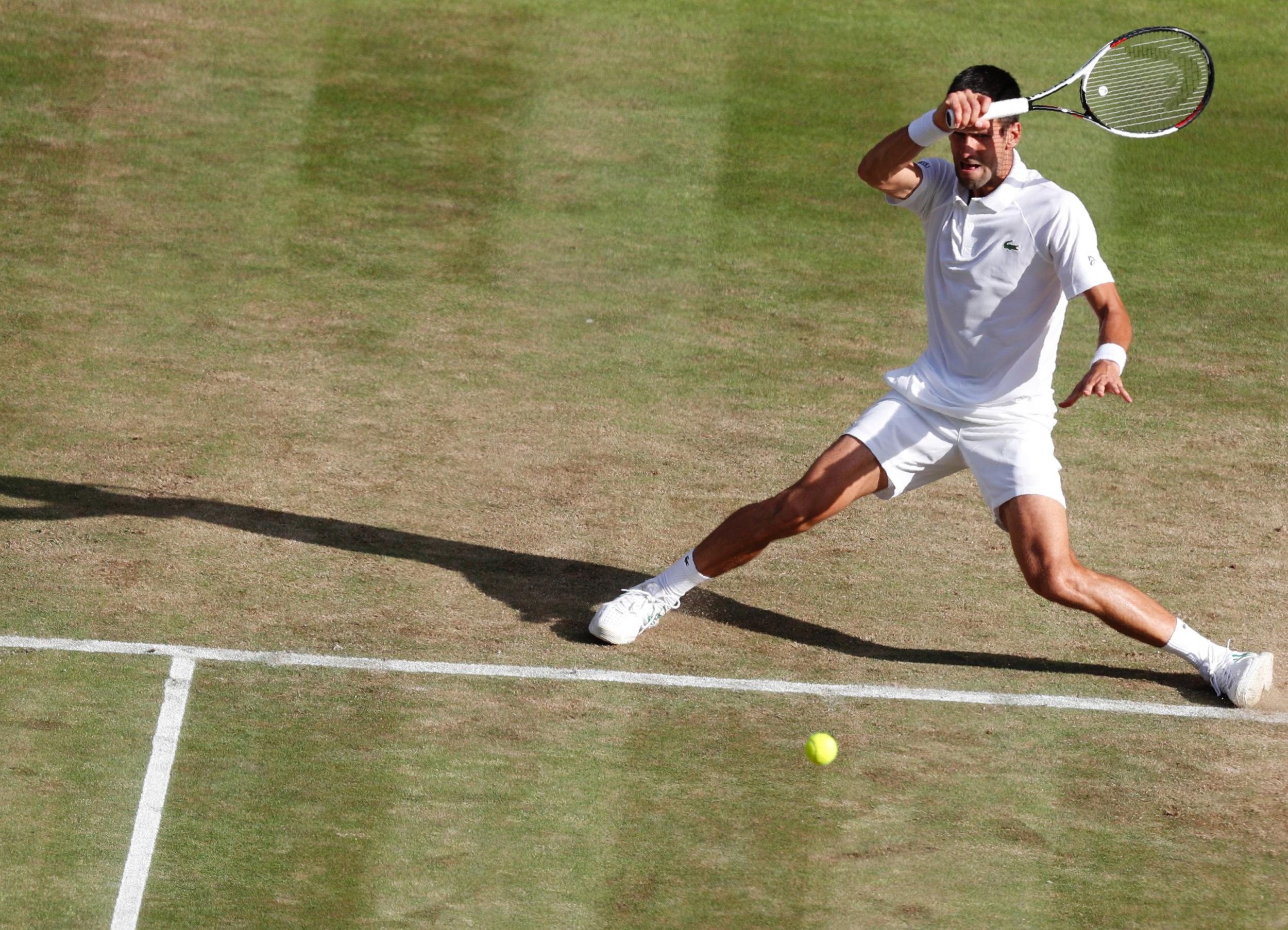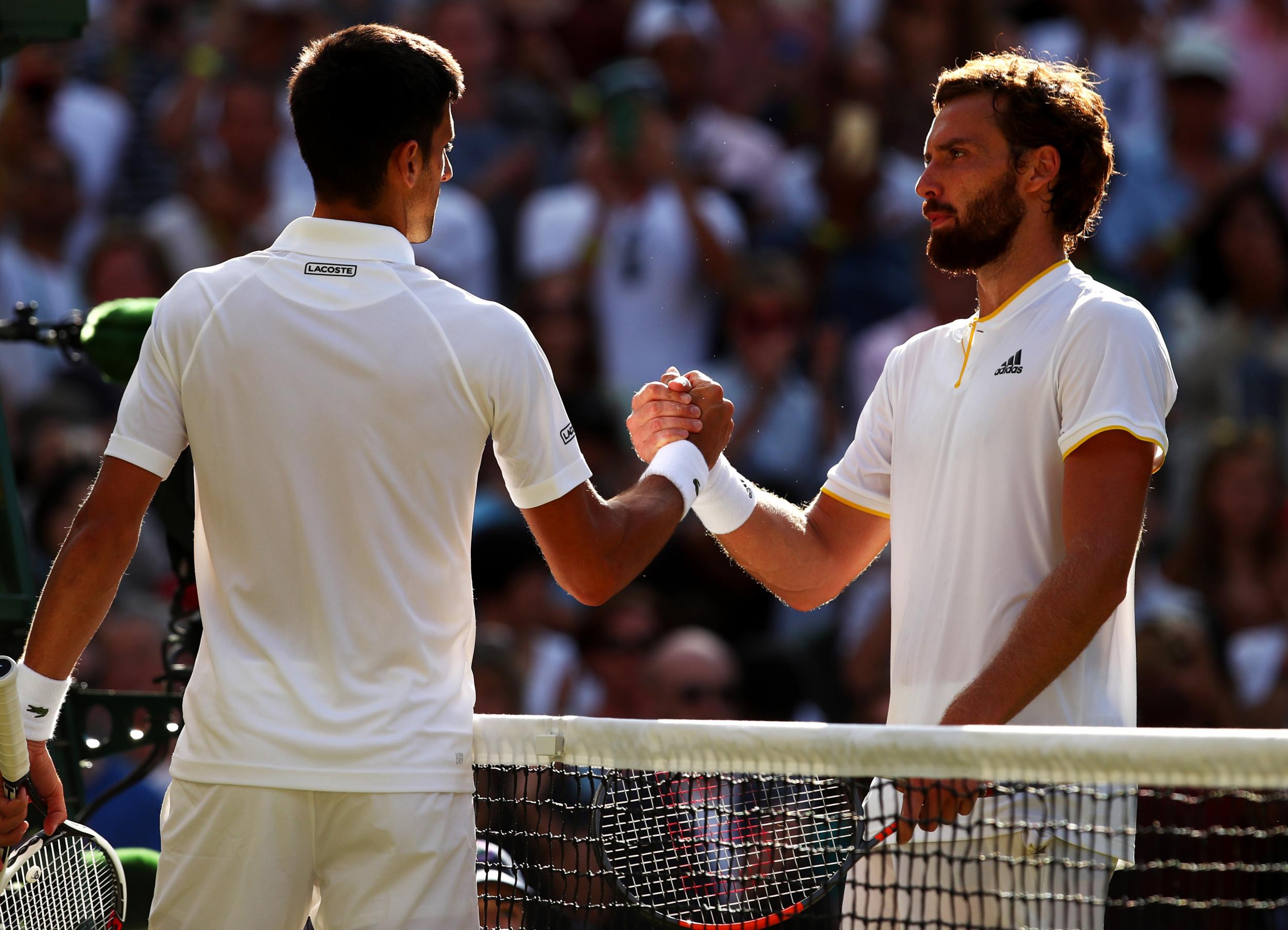Wimbledon 2017: Novak Djokovic rediscovers some of his old confidence with impressive win over Ernests Gulbis
A year after suffering one of the most remarkable defeats of his career, Djokovic dispatched of Gulbis in straight sets to reach the second week of Wimbledon

Your support helps us to tell the story
From reproductive rights to climate change to Big Tech, The Independent is on the ground when the story is developing. Whether it's investigating the financials of Elon Musk's pro-Trump PAC or producing our latest documentary, 'The A Word', which shines a light on the American women fighting for reproductive rights, we know how important it is to parse out the facts from the messaging.
At such a critical moment in US history, we need reporters on the ground. Your donation allows us to keep sending journalists to speak to both sides of the story.
The Independent is trusted by Americans across the entire political spectrum. And unlike many other quality news outlets, we choose not to lock Americans out of our reporting and analysis with paywalls. We believe quality journalism should be available to everyone, paid for by those who can afford it.
Your support makes all the difference.It was on the middle Saturday at Wimbledon last year that the first cracks appeared in Novak Djokovic’s apparent invincibility. The Serb had arrived at the All England Club as the first man for 47 years to hold all four Grand Slam singles titles, only to suffer one of the most remarkable defeats of 2016 when he lost to Sam Querrey in the third round.
When Ernests Gulbis led Djokovic 4-2 in the opening set of their third-round meeting here it seemed that there might be no end to the former world No 1’s travails, but what followed provided further evidence that he might be turning a corner after the most testing 12 months of his career.
Djokovic won 6-4, 6-1, 7-6 to reach the last 16 at Wimbledon for the 10th time in his career and will be fancied to book his place in the quarter-finals when he faces Adrian Mannarino on Monday. Mannarino, the world No 51, secured his place in the fourth round with a 7-6, 4-6, 5-7, 6-3, 6-2 victory over his fellow Frenchman, Gael Monfils.
“I’m delighted with the performance,” Djokovic said after beating Gulbis. “I thought I raised my level of tennis compared with my first couple of matches. I think this was the most focused I was on the court and it was obviously the right time because Gulbis presents a great challenge.
“He’s very unpredictable and has a huge serve. He was averaging around 125mph or 130mph and it’s obviously not easy playing on grass against a big server like that. He started very well and was a break up, but then I managed to win several games in a row and that gave me a lot of confidence. Just in general I’m very pleased with the way I felt and the way I played.”
Whether or not it has anything to do with the arrival of Andre Agassi and Mario Ancic in his coaching entourage, there has been a renewed spring in Djokovic’s step this week. The Serb has not dropped a set in his first three matches and seems to have recaptured some of his old confidence.

Djokovic has known Gulbis ever since they were teenagers together at Niki Pilic’s academy in Munich. Knowing Gulbis, however, is not the same thing as being able to predict what the flamboyant Latvian is going to do next – either on the court or off it. On his day the former world No 10 can be a threat to any opponent with his thunderous serves and ground strokes.
Gulbis owed his place in the main draw to a “protected” world ranking after struggling with injuries for much of the last two years. The 28-year-old Latvian has dropped out of the world’s top 500 and arrived here having won only two matches in 2017. He has even been usurped as his country’s best known tennis player following Jelena Ostapenko’s French Open triumph.
For the best part of half an hour, nevertheless, Gulbis looked more than capable of springing a surprise on another glorious afternoon on Centre Court. Having levelled at 1-1 with some huge serves timed at up to 136mph, Gulbis broke in the following game. At 30-30 the Latvian thumped a bold backhand winner down the line and on break point he fired an even more ferocious forehand return winner.
It seemed to take a confrontation with the umpire, Jake Garner, over line calls to bring Djokovic to life. He broke back in the eighth game, Gulbis double-faulting on break point, and took control thereafter.
By the time he trailed 5-0 in the second set Gulbis had lost nine games in a row. The Latvian finally stopped the rot but there was to be no stopping the Djokovic bandwagon as the Serb served out in the following game to take the set.
At least the third set was closer. Gulbis had treatment for a back problem before the start of it and came out with all guns blazing to win the first six points. There were only two break points in the set – one for each man, both of them unconverted – before the tie-break.

Things looked ominous for Gulbis from the moment he netted a forehand on the first point of the tie-break, which Djokovic won 7-2. Having greeted two of his winning points with huge roars of celebration, the Serb had a big smile on his face as he milked the crowd’s applause at the end of the match.
Djokovic beat Mannarino in the second here 12 months ago but said the Frenchman would be a difficult opponent. “He beat Monfils today in five sets, which was a great effort,” the Serb said.
“Mannarino is a very tough player to play against on the grass because he’s got a very flat shot on both sides. He has a very good sliced serve and anticipates very well on the surface. Beating Monfils and playing in the final in Turkey in the week before Wimbledon, he’s in good form. I am too, so hopefully I’ll be able to repeat the result from last year.”
Join our commenting forum
Join thought-provoking conversations, follow other Independent readers and see their replies
Comments